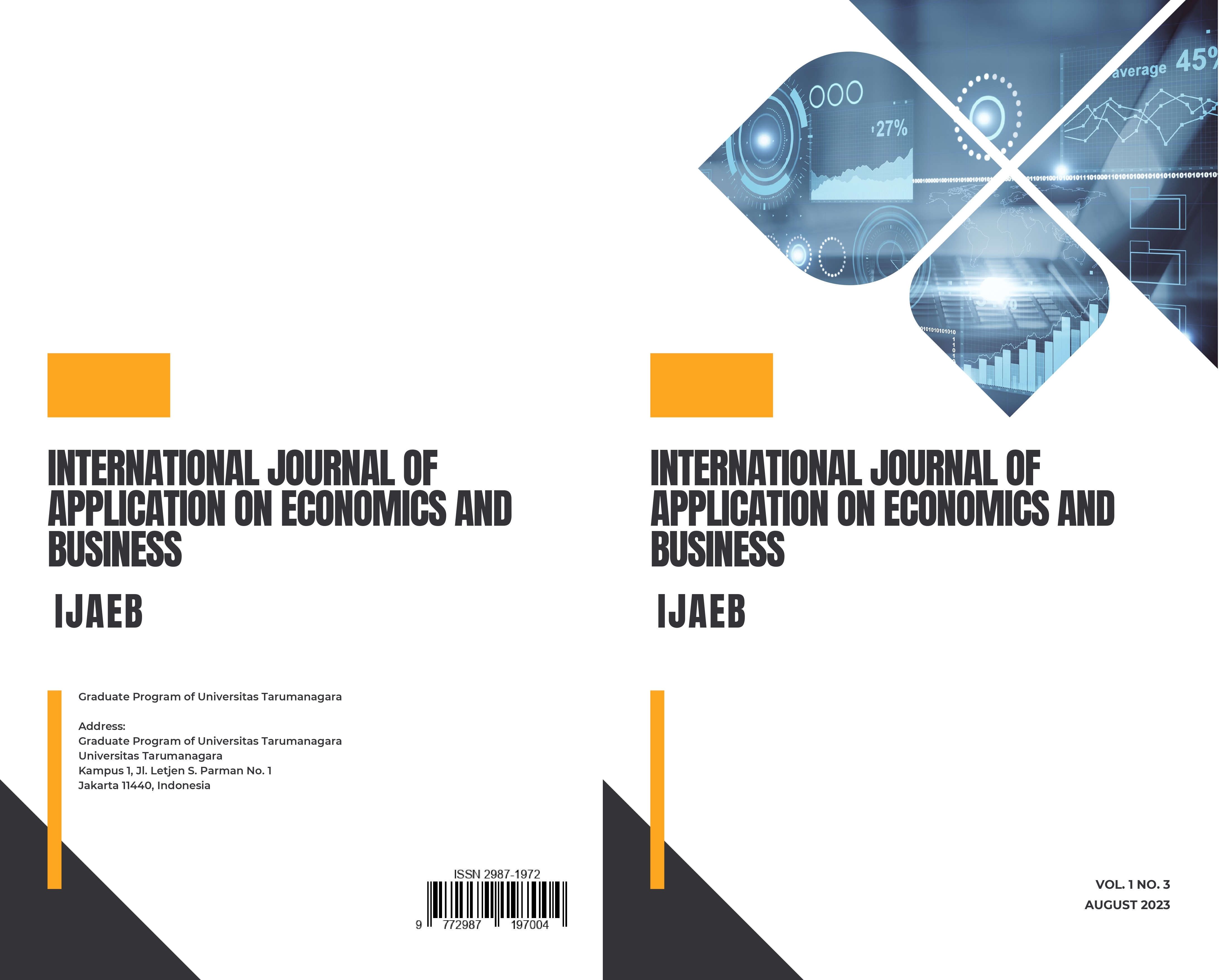FINANCIAL LITERACY TECHNOLOGY ADOPTION IN INDONESIAN SHARIA BANKING: A PRELIMINARY ANALYSIS
Main Article Content
Abstract
The growth of financial instruments is significant nowadays. Because of that, more people are becoming more responsible in their financial planning, investment, and living expenses. Individuals who have financial knowledge tend to have more assets in finance in general. This research will study the readiness of technology adoption as its preliminary analysis for middle-lower socio-economics users in financial literacy of a leading Indonesian Sharia financial inclusion bank that focuses on women empowerment. In addition, this research also identifies the must-have features of the e-learning application. This research will conduct an online survey with 118 samples in Indonesia. This study found that West Java, South Borneo, and Southeast Sulawesi users are the most well-prepared to use technology to support their business. Some features like a group of learning materials and video-based learning are the most attractive features users desire to be accessible in the e-learning application.
Article Details
Section

This work is licensed under a Creative Commons Attribution-NonCommercial-ShareAlike 4.0 International License.
This journal provides immediate open access to its content on the principle that making research freely available to the public supports a greater global exchange of knowledge.
IJAEB by Graduate Program of Universitas Tarumanagara is licensed under a Creative Commons Attribution-NonCommercial-ShareAlike 4.0 International License.. Permissions beyond the scope of this license may be available at https://journal.untar.ac.id/index.php/ijaeb
References
A. Lusardi, “Financial literacy and the need for financial education: evidence and implications,” Swiss Journal of Economics and Statistics, vol. 155, no. 1, pp. 1–8, 2019, doi: 10.1186/s41937-019-0027-5.
M. Muñoz-Murillo, P. B. Álvarez-Franco, and D. A. Restrepo-Tobón, “The role of cognitive abilities on financial literacy: New experimental evidence,” Journal of Behavioral and Experimental Economics, vol. 84, p. 101482, Feb. 2020, doi: 10.1016/J.SOCEC.2019. 101482.
M. Altman, “Implications of behavioural economics for financial literacy and public policy,” Journal of Socio-Economics, vol. 41, no. 5, pp. 677–690, 2012, doi: 10.1016/j.socec. 2012.06.002.
J. Li, R. Ghosh, and S. Nachmias, “In a time of COVID-19 pandemic, stay healthy, connected, productive, and learning: words from the editorial team of HRDI,” Human Resource Development International, vol. 23, no. 3, pp. 199–207, 2020, doi: 10.1080/ 13678868.2020.1752493.
P. J. Morgan and T. Q. Long, “Financial literacy, financial inclusion, and savings behavior in Laos,” Journal of Asian Economics, vol. 68, p. 101197, Jun. 2020, doi: 10.1016/ J.ASIECO.2020.101197.
J. S. Lopus, D. S. Amidjono, and P. W. Grimes, “Improving financial literacy of the poor and vulnerable in Indonesia: An empirical analysis,” International Review of Economics Education, vol. 32, p. 100168, Sep. 2019, doi: 10.1016/J.IREE.2019.100168.
R. Henager and B. J. Cude, “Financial literacy and long- and short-term financial behavior in different age groups,” Journal of Financial Counseling and Planning, vol. 27, no. 1, pp. 3–19, 2016, doi: 10.1891/1052-3073.27.1.3.
H. H. Kim, R. Maurer, and O. S. Mitchell, “How financial literacy shapes the demand for financial advice at older ages,” The Journal of the Economics of Ageing, vol. 20, p. 100329, Oct. 2021, doi: 10.1016/J.JEOA.2021.100329.
T. Kaiser and L. Menkhoff, “Does financial education impact financial literacy and financial behavior, and if so, when?,” World Bank Economic Review, vol. 31, no. 3, pp. 611–630, 2017, doi: 10.1093/wber/lhx018.
Anshika, A. Singla, and G. Mallik, “Determinants of financial literacy: Empirical evidence from micro and small enterprises in India,” Asia Pacific Management Review, vol. 26, no. 4, pp. 248–255, Dec. 2021, doi: 10.1016/J.APMRV.2021.03.001.
A. Al-Fadly, “Impact of covid-19 on smes and employment,” Entrepreneurship and Sustainability Issues, vol. 8, no. 2, pp. 629–648, 2020, doi: 10.9770/jesi.2020.8.2(38).
D. Napitupulu, M. Syafrullah, R. Rahim, D. Abdullah, and M. I. Setiawan, “Analysis of user readiness toward ICT usage at small medium enterprise in south tangerang,” Journal of Physics: Conference Series, vol. 1007, no. 1, 2018, doi: 10.1088/1742-6596/1007/1/012042.
H. Baber, “Since January 2020 Elsevier has created a COVID-19 resource centre with free information in English and Mandarin on the novel coronavirus COVID- 19. The COVID-19 resource centre is hosted on Elsevier Connect, the company’ s public news and information,” no. January, 2020.
M. N. Yakubu and S. I. Dasuki, “Factors affecting the adoption of e-learning technologies among higher education students in Nigeria: A structural equation modelling approach,” Information Development, vol. 35, no. 3, pp. 492–502, 2019, doi: 10.1177/ 0266666918765907.
D. Rahardjo, “E-Learning Readiness and Technology Adoption in Online Tutorial,” OPEN EDUCATION IN HUMAN RESOURCE DEVELOPMENT IN ASIA’S PERIOD OF INTEGRATION: The 32nd Annual Conference of the Asian Association of Open Universities, no. August, pp. 549–556, 2018.

